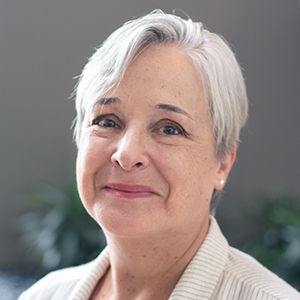Be a writer
Snow still looms in the Maryland weather forecast as I type this, but thoughts here in the American Society for Biochemistry and Molecular Biology office are turned to the sunny flip-flop weather of Orlando. Preparations are well underway for the annual meeting and likely to consume us for the next month or so.
Here at the magazine, we’re focused on providing you with lots of meeting-related articles and useful information ( check out our speakers’ profiles) in this issue and the next, but, as always, I’m looking beyond the horizon, toward late spring and summer. These pages won’t fill themselves.
Here at ASBMB Today, we have a wonderful crew of volunteer writers who cover news of cutting-edge research and the scientists who make it happen (all the annual meeting profiles in this issue were written by volunteers). And we have staff writers who provide our deep-dive feature stories. Their contributions might be considered the brains of this publication.
But you, our members, provide much of its heart and soul. (Don’t poke this analogy too hard, please.)
I like to think that this is a members’ magazine in the best sense of the term. It rightly belongs to the members, and it’s a place where you can share your stories and opinions. It’s also a great venue for civil discourse and debate. Consider this your invitation.
We have two essay series running this year: “Night shift” and “What I wish people understood about ___.” In this issue, I’ve taken on the second of these topics (even though my bumper sticker reads, “I’d rather be editing”) in the hopes that you’ll feel encouraged to pick up a pen or flip open your laptop and pour out a story from your experience. Deadline (rolling): first Monday of the month, through October.
We have an education and careers issue scheduled for August. If you’ve faced and surmounted professional challenges, we want you to share what you’ve learned. If you’ve had failures and setbacks, we want, perhaps even more, to read about those too. Deadline: June 3.
Did you read our wellness issue in January? It was absolutely chock-full of inspiring stories and good advice from (you guessed it) members. This is such a huge topic for the science community that we’re tentatively planning another such issue for January 2020. Do you have a story to tell about how you take care of yourself or about obstacles to staying well? You know what I want you to do. Deadline: TBD.
So many great topics swirl around this community. You have opinions. You have stories. You have ideas for making things better. Deadline: the sooner the better.
And you have an editor (me). Send me your words, and I’ll work with you to make them say what you want to say in the clearest, most elegant, most honest way possible.
I look forward to reading you.
Enjoy reading ASBMB Today?
Become a member to receive the print edition four times a year and the digital edition monthly.
Learn moreGet the latest from ASBMB Today
Enter your email address, and we’ll send you a weekly email with recent articles, interviews and more.
Latest in Opinions
Opinions highlights or most popular articles

Women’s health cannot leave rare diseases behind
A physician living with lymphangioleiomyomatosis and a basic scientist explain why patient-driven, trial-ready research is essential to turning momentum into meaningful progress.

Making my spicy brain work for me
Researcher Reid Blanchett reflects on her journey navigating mental health struggles through graduate school. She found a new path in bioinformatics, proving that science can be flexible, forgiving and full of second chances.

The tortoise wins: How slowing down saved my Ph.D.
Graduate student Amy Bounds reflects on how slowing down in the lab not only improved her relationship with work but also made her a more productive scientist.

How pediatric cataracts shaped my scientific journey
Undergraduate student Grace Jones shares how she transformed her childhood cataract diagnosis into a scientific purpose. She explores how biochemistry can bring a clearer vision to others, and how personal history can shape discovery.

Debugging my code and teaching with ChatGPT
AI tools like ChatGPT have changed the way an assistant professor teaches and does research. But, he asserts that real growth still comes from struggle, and educators must help students use AI wisely — as scaffolds, not shortcuts.

AI in the lab: The power of smarter questions
An assistant professor discusses AI's evolution from a buzzword to a trusted research partner. It helps streamline reviews, troubleshoot code, save time and spark ideas, but its success relies on combining AI with expertise and critical thinking.

